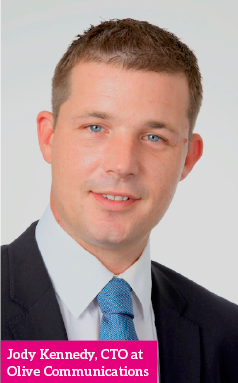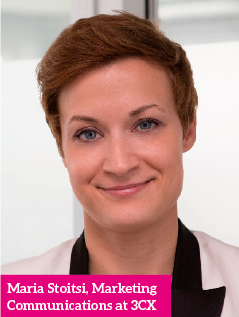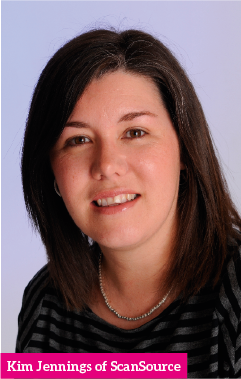
The business voice telephony market has become much more interesting in recent times. With PBX vendors developing multiple deployment model variants and cloud or hosted service providers developing their own platforms the choice for users and resellers is widening.
In the December 2005 issue of Comms Business we published the fourth article of that year to focus entirely on CPE based PBX. The companies we quoted in the article included Panasonic, Alcatel, Samsung, Mitel, Toshiba, SpliceCom and Aastra. We referenced the fact that 2005 had seen the introduction of a host of smaller PBX systems targeting users of up to 30 extensions. There was one sentence in the article about hosted telephony.
 Of those PBX vendors of ten years ago, whilst all exist in some form or another, only SpliceCom considered putting pen to paper today and contacting us about the future of communications platforms.
Of those PBX vendors of ten years ago, whilst all exist in some form or another, only SpliceCom considered putting pen to paper today and contacting us about the future of communications platforms.
The demise of the CPE based PBX has been heralded and predicted more times than most people can remember however the fact remains that a lot of resellers are still doing well selling PBX systems. If you look at Mitel today for example, the firm has led the way in providing alternative deployment models for their platforms for the channel and reaped the rewards from this innovation.
One of the mainstream channel protagonists from ten years ago was Siemens, now known as Unify. Today they are a very different company. Sure the name and ownership has changed, but it is still a global reach firm with ambition to disrupt the channel.
Unify’s new ways to work initiatives underlie their progressive shift of emphasis from hardware to software based solutions and in the UK they have recently appointed ScanSource as a second distributor to run alongside Nimans.
Back in 2005 we spoke to Martin Hatcher of distributor MTV Telecom so I thought it fitting to have a catch up with ScanSource, the company that acquired the Egham based firm, and their Sales Director Kim Jennings. She says resellers are looking for something different.
“When it comes to the cloud traditional PBX resellers are in the main waiting to see what their existing vendors have planned. All of our vendor partners, ShoreTel, Avaya and Unify have cloud, CPE and hybrid options.
Since we launched the Unify product range at Mercedes World last month we have added net new partners. The on-boarding packages from Unify are very attractive and help partners quickly realise new revenue generation. Success in 12 months time will look like many of these new partners selling multiple systems each month and to further advance that goal we have two Unify events planned for the end of July in Manchester and London.”
Today all the talk surrounds cloud based provision of applications including telephony but we wonder how much short to medium term impact this is having on the CPE market. Such as will any one model or format for telephony really prevail?
Jody Kennedy, CTO at Olive Communications, says ‘Absolutely not!’
“It’s impossible for one model to prevail in today’s modern business communications world where flexibility is key.
Today’s workforce is mobile – work is a thing we all do and no longer a place we go.
What businesses need is a converged solution that is able to integrate key business applications and processes, including contextual solutions, delivered in a scalable telephony system that works for the end user regardless of their number or their location.
The reality is that today’s businesses don’t want one model, they understand that they need to provide their workforce with flexible solutions. A truly converged solution delivers that flexibility.
 We need to be able to offer our customers intelligent cloud telephony solutions, combined with secure Internet connectivity that ensure, for example, that if a desktop phone rings and is not answered then the call is automatically routed to the appropriate mobile phone. In today’s competitive business environment, no one can afford to miss calls.
We need to be able to offer our customers intelligent cloud telephony solutions, combined with secure Internet connectivity that ensure, for example, that if a desktop phone rings and is not answered then the call is automatically routed to the appropriate mobile phone. In today’s competitive business environment, no one can afford to miss calls.
We need to provide integration with Skype for Business to provide easy access to presence capabilities, messaging and online voice and video meetings.
To provide a fully integrated cloud based converged business communications solution it is essential to understand exactly what the customer wants, spend time with them, understand their business and work with them to provide a solution that meets both their current and future communications requirements. Few resellers/MSPs spend the necessary time with their customers to do this.
Those in the channel who have been slow to understand the role that the cloud plays in providing the ‘telephony’ solutions that today’s business communications demand, or who have allowed themselves to fall behind the curve with regard to adding the right solutions to their portfolio, will be failing to close business – big time!”
Alexis Argent, Founder and Director at VoIPon Solutions, says he does not believe this will happen because customers will always have different needs and requirements.
“This market changes very frequently, so new ideas and developments within unified communications will continue to progress. We may find that a certain model, like Lync (Skype for Business), or a certain format like hosted, cloud or on-premises appliances could be a leader for some time. Because the advancements are happening at a reasonably fast pace, it makes it difficult for any one model or format to prevail.
It is important that those who see themselves as the forerunners in this market ensure they work cross-platform and balance interoperability between the manufacturers to deliver a simple solution. But who’s to say what’s next? We have already moved from software on servers with cards to appliances, and onward to cloud platforms.
I think there is no question that Microsoft Lync will have a huge part to play in the short term because it is such a trusted brand.
I feel very much that no single platform will ultimately prevail. One will lead until something new arises. At this point in time, I can only see Cloud or Hosted solutions providing a reasonably long-term solution to the masses. Most companies don’t want server rooms and appliances clogging up high-cost space or the expense of hiring costly IT Technicians to ensure everything works smoothly. The Cloud/Hosted solutions offer something different.”
Paul Burn, Head of Category Sales at Nimans says that if the conversation was based on a barometer then it’s shifted more towards hosted in the last year.
 “It’s very much an evolving marketplace and there’s still plenty of CPE being sold. Interestingly there’s been a dynamic shift with PBX vendors bringing out hosted propositions within their existing portfolios. This has thrown up some interesting conversations because if you are a reseller selling tin AND hosted you are selling two different feature sets – on premise and off premise.
“It’s very much an evolving marketplace and there’s still plenty of CPE being sold. Interestingly there’s been a dynamic shift with PBX vendors bringing out hosted propositions within their existing portfolios. This has thrown up some interesting conversations because if you are a reseller selling tin AND hosted you are selling two different feature sets – on premise and off premise.
But for me the argument seems to be getting a bit lost and going the wrong way. There seems to be too much emphasis on connectivity and how ‘voice’ gets into a building when the real conversation should be about what are the benefits for the customer in terms of usability. If we are having a conversation about billing and connectivity then it’s the wrong conversation at the front end. Features and benefits are the priority – delivery should be further down the line.
Resellers are getting more used to the recurring revenue model but it’s not universal. Hybrid is key in any marketplace. Hosted applications are becoming more common but there’s no evidence hosted is going to kill off PBX altogether. I was very much waving my CPE ‘flag’ 12 months ago; it’s still being waved but there’s some very interesting developments in how resellers can mix and match and give the customer the most appropriate solution. That’s got to be the most important objective.”
According to Maria Stoitsi, Marketing Communications at 3CX, the deployment rate of traditional CPE models is decreasing and there are several reasons for this trend.
“The biggest being that the birth of alternative solutions, such as cloud-based ones, are gaining increased popularity, largely due to its innovative nature and the push towards ‘everything-cloud’. However, it is doubtful that OPEX models will consume the market in its entity.
For many company structures it is impossible to move their whole communication infrastructure to the cloud and so CPE models will still be an important element for them. We can see this happening in institutions or businesses that need to have a ‘backup plan’ in case of an emergency, where connection to the cloud provider, and hence to the PBX, cannot be restored quickly enough.
Further, some companies work in data-security-sensitive markets, for example, banks, legal firms, and hospitals, and must retain control over their data at all times. It will not be very likely that such businesses will entrust the privacy of their data to a third-party provider, no matter how ‘popular’ cloud solutions might be.”
Tim Meredith, Director of Unified Communications and Collaboration at Daisy Group, believes it is only recently that hosted telephony and hosted UC has reached maturity.
“In the same way that SIP trunking is trusted as a viable alternative to ISDN and is being adopted in rapidly growing numbers, hosted UC is now also gaining that same trust and is likely to experience a corresponding scale of growth.
Today all the talk surrounds cloud-based provision of applications including telephony but we wonder how much short to medium term impact this is having on the CPE market. Will any one model or format for telephony really prevail?
“Cloud-based multi-tenancy is probably the only viable long-term option from a service provider’s perspective in terms of scale, available features, price point and density. Because, with multi-tenancy, all customers are running the same platform version and feature-set from the service provider’s cloud, users don’t have to wait for new services to trickle-down from service provider to distributor, to reseller, finally reaching their business. Once they become available to one customer, they are accessible to all. As a result of this democratisation, it seems obvious that multi-tenant will become the number one choice.
“Single tenant PBX systems may have historically been viewed by some as ‘the only choice’, especially those in enterprise and public sector organisations. However, this attitude is changing. You only need to look at the government’s ‘cloud first’ strategy to see that there is a greater understanding of the limitations organisations are subjected to by failing to adopt a cloud-based system.
“Where there is a lack of trust or regulatory restrictions in deploying a multi-tenant solution, single tenant deployments based on UC-ready cloud infrastructure, allow customers to reap some of the benefits of a ‘cloud-first’ approach, without handing the keys over entirely to the service provider.”
Reseller Comment:
Darren Standing, head of products and marketing at reseller Solar Communications, says that ultimately, the telephony model that will prevail is the one that offers the most flexibility to the business — whether the solution is on-site, hosted, cloud or hybrid.
“Every organisation’s needs are different, but maximising budgets is a critical common factor. Today’s voice solutions must offer a suite of features that can be tailored to a business’s unique requirements, while integrating with ease with existing enterprise systems and hardware to protect legacy investments. The solution must also be able to scale as a business grows and allow the flexibility to adapt and introduce new features and applications when required – without large up-front investments.”
Plane in Clouds
Phillip Reynolds, Joint CEO at Oak says that finally after many many years of talk we are seeing a real change in the market.
“Hosted offerings are being picked up by the smaller end of the market where a new business needs some extensions or where a larger business has many small offices or shops where just a couple of phones are required. In this case practicality and affordability are driving sales.
Another driver for change is that switch manufacturers are delivering hosted and cloud based versions of their previous CPE only based hardware and software solutions, so everyone is trying to get in on the act. Let’s not forget the recent rebrand from Lync to Skype for Business by Microsoft, another keen player in the communications market but not necessarily the telephony market.
These are all driving change but not necessarily in a good way. If you want reliable and resilient communications you’ll have to go a long way to match up with a PABX and ISDN. The reason that 747’s and triple 7’s still fly us round the globe is the reliability record and they do the job which is the same reason that businesses of any real size are reluctant to move away from the traditional PABX. If your business can’t take or make calls on a busy weekday or weekend then a lot of potential business can be lost and very quickly customers get concerned as to whether you’re still in business. Not wanting to be too dramatic but a plane crash is a disaster in much the same way as losing communication is a disaster for your business.
The most reliable computer system I work with every day is the humble PABX. If you add to this the increasing availability of real time applications for your PABX such as screen popping CRM client records or pausing call recording whilst taking credit card details, you have both high tech and reliability in a single solution, two things not often found together.
At Oak the other change we have seen is the location of the PABX moved to the data centre, a hosted solution if you like. This is simply the relocation of CPE equipment to a managed data centre environment but using IP to drive handsets remotely as opposed to hardwired bespoke desktop phones.
To my mind there will continue to be erosion at the entry-level market of up to about 20 extensions but the larger and now more sophisticated market will be better served by CPE or CPE hosted in a data centre if that’s not a contradiction in terms.
Whether one platform will prevail, well I hope not. Each platform has its own merits and if we dig beneath the hype and beneath the need to generate profit from new technology, we may find each business gets the right solution for them.
If planes were hosted or cloud based my flying days would be over. I might be old school but my 747 like telephone system on the wall still delivers what my customers need, good reliable service 24/7.”
Ed Says…
It really is an interesting time for business communications and the delivery and deployment of voice services. Never has there been such a wide choice of viable options for resellers. In case you were wondering what happened to the SpliceCom contribution to the article, well, it was so good we decided to give it its own page next month.
